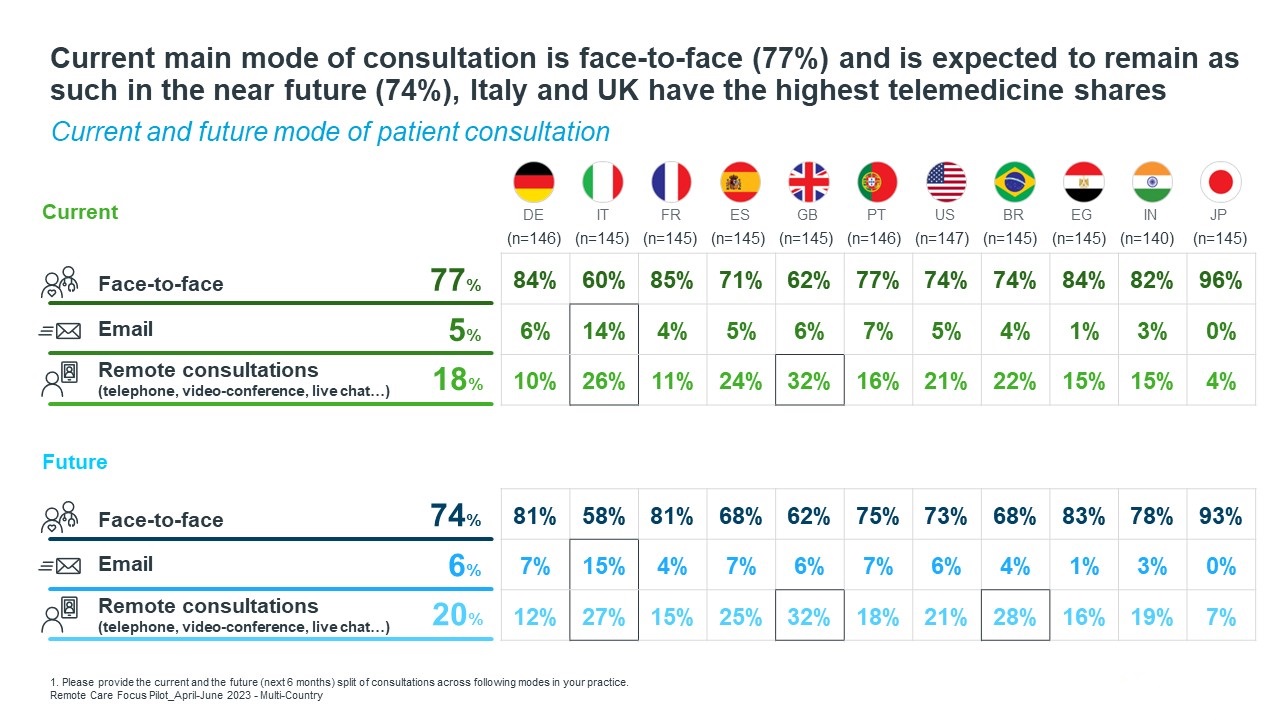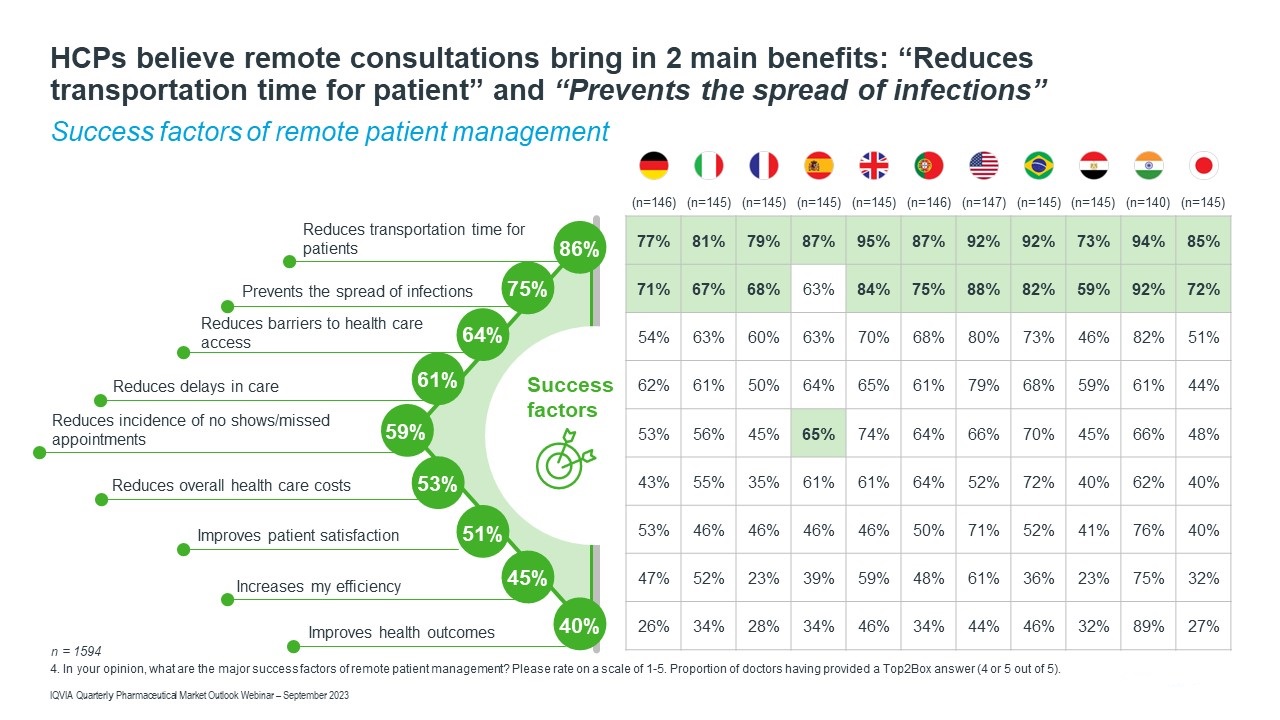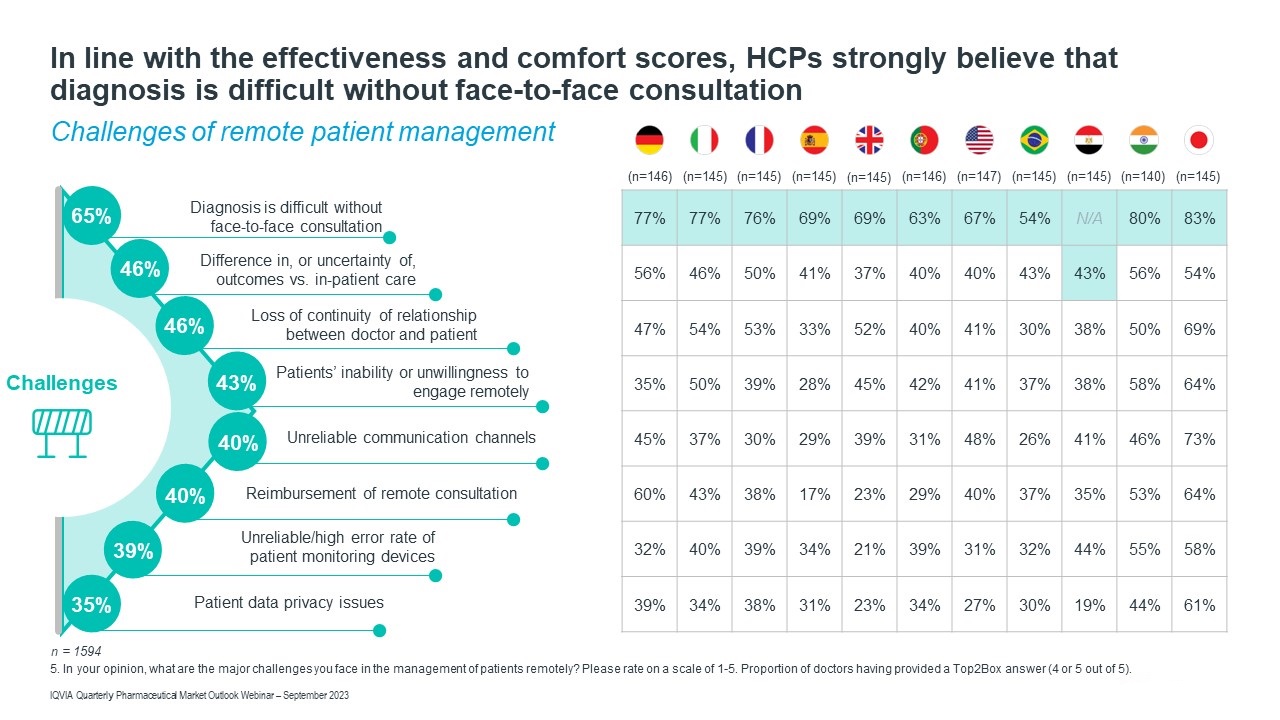





















Remote healthcare has revolutionized healthcare delivery. While this shift was accelerated by the short-term need for accessing medical services during the COVID-19 pandemic, it has continued to become a more long-term trend, prompting the medical community to adopt a new approach to patient care.
The first article in a 3-part series will explore telemedicine related insights, sharing country-level results from the IQVIA primary market research “Remote patient care in 2023”.
Circa 1,600 physicians were interviewed from 11 different countries, with a focus on four different specialties: GPs, paediatrics, neurologists and psychiatrists.
The respondents were asked to estimate how often they currently used each mode of consultation and how they expected it to change in 6 months’ time.
- Face-to-face consultations continue remain the dominant channel across all countries and it is expected that the proportion will remain relatively stable in the next 6 months to come.
- At an individual country level, Italy and the UK have the highest remote consultation shares, with 41% and 38% respectively, followed by Brazil at 32%. Furthermore, Brazil showed the highest expectations of increasing telemedicine use in the short term.
- Japan showed the lowest share of remote patient interactions, with only 4% of the consultations carried out remotely, followed by Germany with 10% and France with 11%.

Doctors also rated the relative importance of various success factors and challenges with respect to remote patient management. The two charts below show the proportion of doctors that deemed each element to be either a major success factor or a challenge.
- The top success factor across all countries is reducing transportation time for patients.
- Second is preventing the spread of infections, with 75% of doctors overall considering it an important success factor.
- The third differs by country but, overall, HCPs believe that telemedicine reduces barriers and allows more patients to access healthcare.

Despite telemedicine showing advantages, some challenges remain.
- Remote care adoption challenges exist in many areas (e.g., regulatory and/or finance) but the number one reported challenge relates to difficulties in conducting diagnoses virtually (i.e. without face-to-face consultation).
- Furthermore, it is important to highlight that over 50% of doctors in Japan, Italy, France, and the UK were concerned with a loss in relationship continuity with patients.
- The challenges rated 3rd and 4th are somewhat connected: 43% of doctors report patient inability or engage remotely is an important issue to overcome as it could impact health outcomes. It may follow that patients are less likely to follow treatment plans when they are given remotely, away from a physical treatment setting.

In conclusion, patients benefit the most from telemedicine deployment. Not only does it allow more patients to consistently access healthcare in a timelier manner, but it also expands the choice around healthcare access in line with preferences. Furthermore, telemedicine enables greater efficiencies from a healthcare system perspective, for example by reducing the time spent on administrative tasks. At the same time, certain challenges need to be overcome to improve the suitability, reliability, and impact of this new approach to managing patient care.
YOU MAY ALSO BE INTERESTED IN
Dynamic HCP Profiling & Targeting: Unlocking Growth with AI and Machine Learning
Read this case study to see how a large pharma client leveraged IQVIA's AIML model to achieve a 250% increase in Rx volume through identifying the right HCPs.
Agile Deployment for Modern HCP Engagement
The continued importance of field and in-person resources for the sales environment of tomorrow
Driving Growth with Omnichannel HCP Activation: New Models. New Value.
As the dust settles, one thing is clear — multi-channel engagement remains challenging but crucial to ensuring consumer health brand success.





